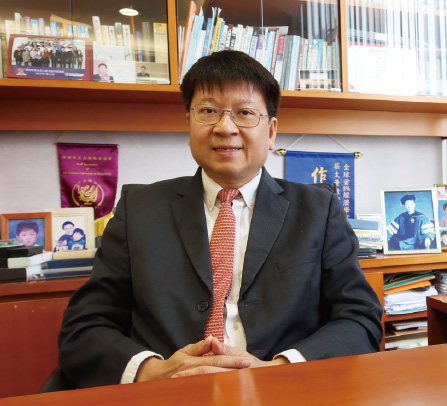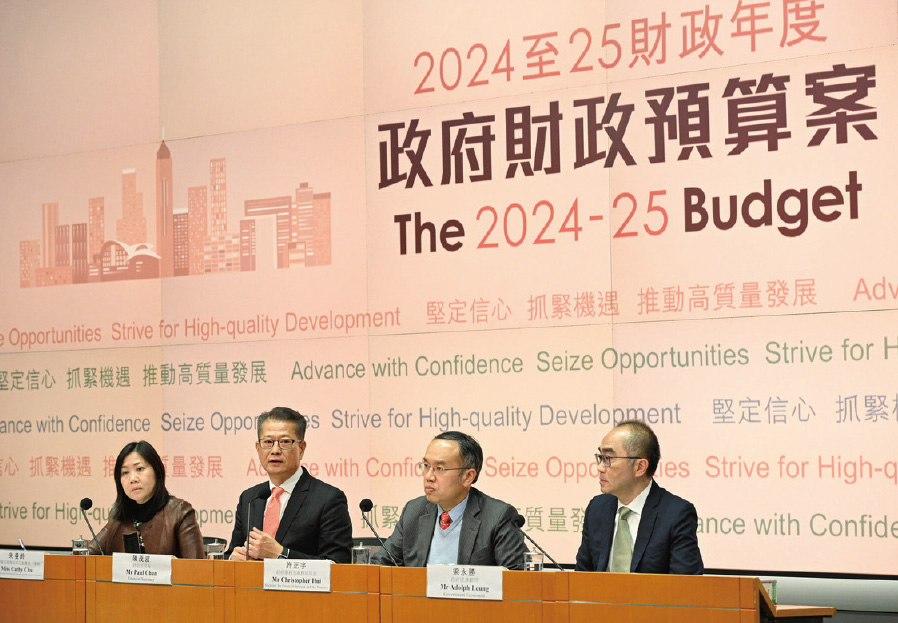
As Hong Kong’s economy slowly recovers, there are high public expectations for the Government to allocate resources effectively to boost economic confidence, maintain sound public finance and support all sectors and industries. Terence Chong, Executive Director of Lau Chor Tak Institute of Global Economics and Finance at CUHK, believes the new Budget has made appropriate responses to address these demands.
 Scrapping property cooling measures boosts economic confidence
Scrapping property cooling measures boosts economic confidence
As the city gets on the path to post-pandemic normalcy, the Budget zeroes in on promoting financial and economic activities. Chong says scrapping all property cooling measures is a key highlight which will definitely boost economic confidence. “Hong Kong’s economy relies heavily on finance, which in turns relies on investor confidence. Since the removal of property cooling measures, we have seen a clear turn in the market and the public is now willing to put their wealth into the property market. When property prices regain upward momentum and the public gradually gains confidence, the financial markets will be more active and vigorous, and the overall economic recovery will gather speed.”
He also points out that going forward financial and commercial exchanges between Hong Kong and the Mainland will continue to increase. Supported by advances in science and technology, as well as complementary measures proposed in the Budget, including deepening the connectivity mechanism, the second phase of the e-HKD trial, gearing up preparations to introduce the RMB counter for Hong Kong Stock Connect, and tax reductions to attract Mainland and overseas family offices, overall capital and information exchange in the Guangdong-Hong Kong-Macao Greater Bay Area will be further strengthened. Hong Kong businesses will enjoy a wealth of development opportunities.
Public finance backed by trillion-dollar exchange fund
 On the public finance front, the Budget adopts a comprehensive fiscal consolidation plan and adheres to the principle of keeping expenditure within the limits of revenue. The aim is to gradually narrow the deficit and restore fiscal balance. Key measures of the plan include controlling operating expenditure increases, prioritizing government capital works and adjusting taxes to increase revenue. Efforts will also be made to maintain government borrowing at a healthy level.
On the public finance front, the Budget adopts a comprehensive fiscal consolidation plan and adheres to the principle of keeping expenditure within the limits of revenue. The aim is to gradually narrow the deficit and restore fiscal balance. Key measures of the plan include controlling operating expenditure increases, prioritizing government capital works and adjusting taxes to increase revenue. Efforts will also be made to maintain government borrowing at a healthy level.
In this regard, Chong believes that the government’s policy is adequate and he does not think Hong Kong is trapped in a structural deficit. He stressed that Hong Kong’s public finance remains sound and we should not base our judgment solely on the deficit. “In fact, assets of the Exchange Fund also provide important financial support for Hong Kong. This is our unique advantage. The Exchange Fund currently has over HKD4,000 billion in total assets. Last year, when interest rates trended up, it recorded an investment income of HKD212.7 billion, which was already higher than the fiscal deficit in the same period.”




